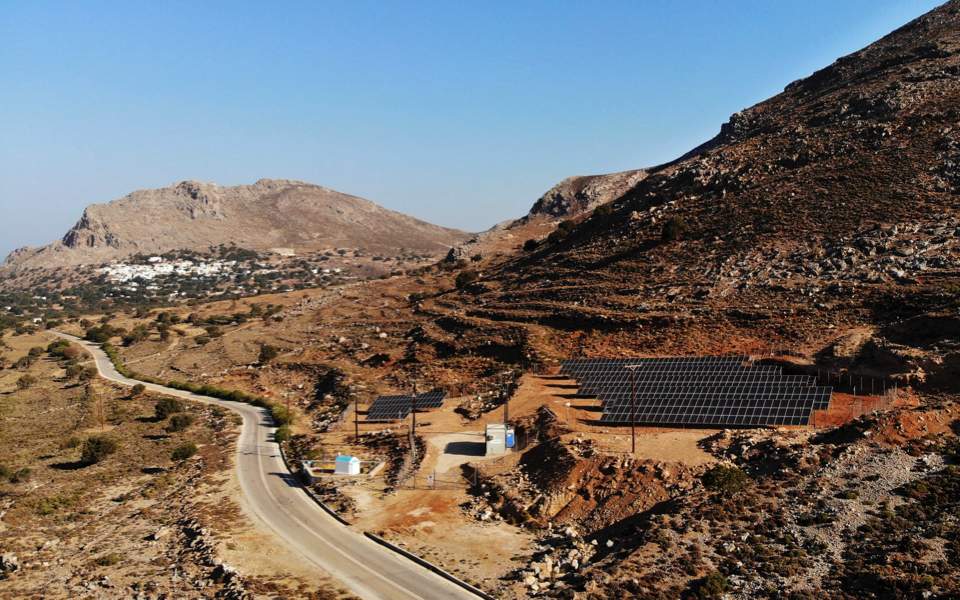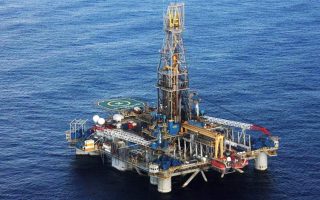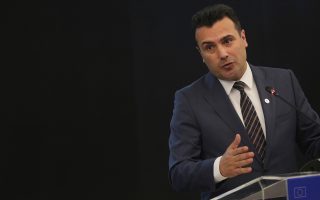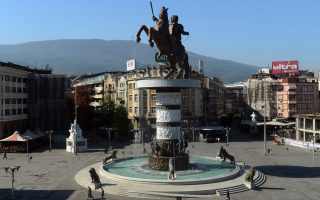Lessons to be learned from Tilos

On the day that Greece exited the eurozone’s bailout program, another story, about Tilos – a small island in the Aegean Sea – also featured in the news. Tilos will soon be powered only by wind and solar energy, making it the first autonomous renewable green island in the Mediterranean. The final tests are currently being carried out and upon their completion Tilos will run exclusively on an innovative installation of high-tech batteries recharged by a wind turbine and a solar park. In an interesting coincidence with the day’s main news, the article pointed out that the project had been funded by the European Union and will be used as a blueprint for other small islands across the EU that have limited grid connection to the mainland.
Unlike Tilos, autonomy will remain a challenge for Greece as it will be difficult to tap the markets and move toward a sustainable path of recovery. The country’s credibility is now in an extremely fragile state, the result of eight years of tough austerity measures and three successive programs, starting in 2010, 2012 and 2015 – the last of which was unnecessary – that were marked by soaring unemployment, hardship, and an unprecedented brain-drain effect.
So, is there any real room for growth? Growth is imperative for the country to regain its credibility and at the same time steer through a series of targeted relief measures via tax reduction in 2019 as well as a set of social and welfare support initiatives that can be covered without external support only up until the end of 2022. The country may have achieved budget surpluses – excluding debt repayments – of around 4 percent in 2016 and 2017, but its hands remain tied as far as social welfare spending is concerned.
Recovery is “not an event, it is a process,” as European Commissioner for Economic and Financial Affairs Pierre Moscovici said on the day Greece emerged from the bailout program. The country can now borrow at market rates but it still has a long way to go in its efforts to refinance maturing loans on sustainable debt terms, especially considering how fragile the global economy has become recently. A number of unfolding events such as the currency crisis in Turkey, uncertainty in Italy and the increased probability of a no-deal Brexit can always destabilize global markets and subsequently affect the country’s recovery efforts.
Greece has already legislated for new reforms for 2019 and 2020 and will remain under supervision for several years. The improving economic indicators however are not yet translating into tangible improvements in Greeks’ day-to-day lives. Except on Tilos. Tilos has managed to achieve the autonomy – at least in energy terms – that the country has been reaching for all these years. Tilos’s autonomy was also made through EU funding but will generate substantial change for the island’s residents, lead to long-term infrastructure improvements, encourage trade and, above all, will improve the social and economic status of those that matter most – the people.
While celebrating the country’s emergence from the last bailout program, the Greek government should stop, think of the people and take a look at Tilos. In the process toward the country’s financial autonomy there are lessons that can be learned from this small Dodecanese island.
Thanos Niforos is director of fund-raising affairs at the European Public Law Organization (EPLO).





